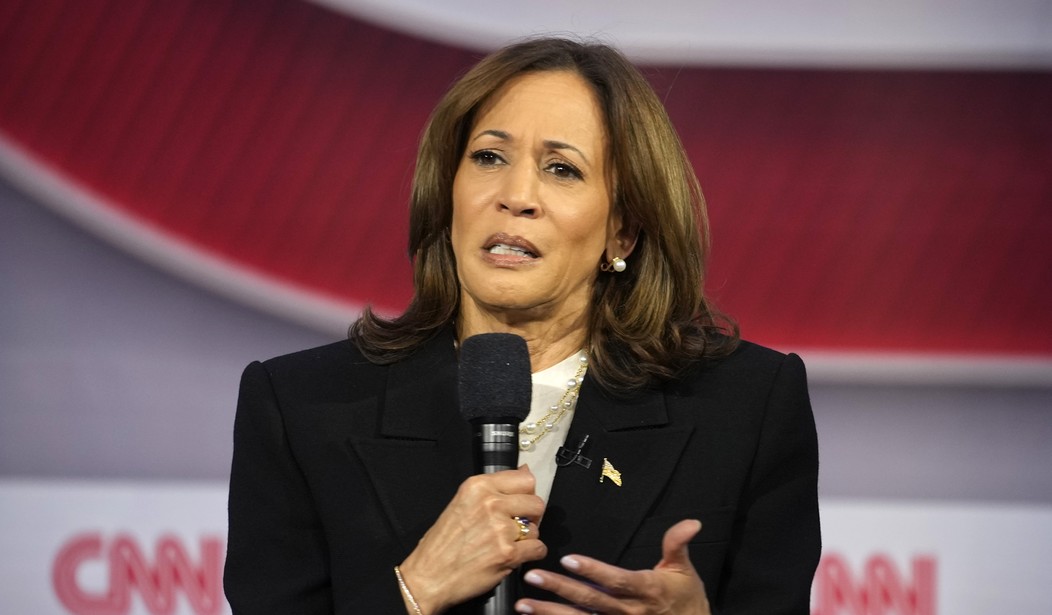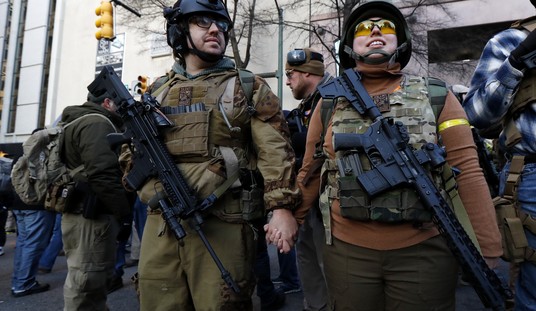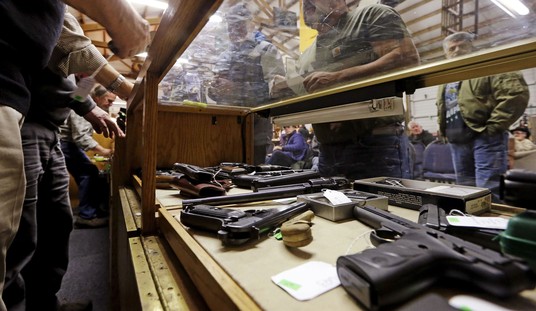In one last, desperate push to attract the votes of gun owners, Kamala Harris pitched herself as a defender of the Second Amendment on Monday night; proclaiming that its possible to protect the right to keep and bear arms and criminalize it at the same time.
I am a gun owner, and I believe we can protect the Second Amendment while also passing gun safety laws.
— Kamala Harris (@KamalaHarris) November 4, 2024
We need to reinstate the assault weapons ban and pass universal background checks, safe storage laws, and red flag laws to keep our children and communities safe. pic.twitter.com/1863BArzk1
You can't protect the Second Amendment while pledging to ban the most common and popular rifles in the country. You can't protect the Second Amendment and support measures to strip people of their lawfully owned firearms without due process. You can't protect the Second Amendment (or the Fourth) by proclaiming police can walk into the locked homes of gun owners to check and see how their firearms are stored.
Throughout her abbreviated presidential campaign, Harris has repeatedly said she supports the Second Amendment and will protect it, but she's never bothered to explain what she thinks the Second Amendment actually protects or given an example of a gun control law she believes would intrude on our right to keep and bear arms.
Of course, if she did that, she might actually have to explain why she's previously supported handgun bans in San Francisco and Washington, D.C.; why she argued to the Supreme Court that justices should declare the Second Amendment doesn't protect an individual right to keep and bear arms, or why she said that the Bruen decision that struck down "may issue" carry licensing regimes "defied common sense and the Constitution."
The truth is that, for all of Harris' talk about supporting the Second Amendment, she's been a reliable voice (and vote) for the most extreme anti-2A positions over the past 20 years. And Harris's judicial philosophy pays little respect to the Constitution or the Bill of Rights. Her contempt for our individual rights doesn't stop with the right to keep and bear arms. As POLITICO highlighted, she's repeatedly "tested the limits of the founding document."
Two episodes in particular show how Harris adopted a restrictive view of the First Amendment while embracing bold prosecutorial strategies to address what she saw as social ills.
In 2015, as California attorney general, Harris co-sponsored legislation that required anti-abortion pregnancy centers to notify their patients about California’s free or low-cost abortion and contraception resources, along with a phone number to call for more information.
At the time, some people in the governor’s office and the legislature worried that the law might not survive a First Amendment challenge, according to Morain, the Harris biographer who covered California politics for the Sacramento Bee and Los Angeles Times. But the state moved forward with the bill, and Harris’ office enforced it.
The anti-abortion centers sued, arguing the law violated their First Amendment rights because it required them to post messages they did not want to. The Supreme Court eventually sided with them, striking down the law. The state was required to pay them $2 million in legal fees.
“This was an instance where she didn’t look around the corner, in my view, and see, well, if we lose this, what is the down side?” Morain said.
The second case highlighted by POLITICO was Harris suing the owners of the website Backpage.com for "“pimping conspiracy.” As California AG, Harris was the first to go after the website owners and accuse them of facilitating sex trafficking, but as POLITICO reports, "a judge eventually tossed out the charges on the ground that the proprietors had immunity under a federal law that protects operators of online forums."
Harris' "pragmatic" approach to the Constitution means the explicit text of our founding document can be ignored in order to reach the conclusion she wants; balancing what the Constitution actually says with what she believes the interests of the government might be.
“For me, a Supreme Court seat is not only about academic issues of legal precedent or judicial philosophy,” Harris said at Kavanaugh’s hearing in 2018. “It is personal. When we talk about our nation’s highest court and the men and women who sit on it, we are talking about the impact that one individual on that court can have, impact on people you will never meet and whose names you will never know.”
Harris highlighted two issues where Supreme Court rulings have had dramatic impact: gun control and the Affordable Care Act.
In written questions to Kavanaugh, she asked if he believed judges could “ever consider the public safety justifications” when assessing a gun law’s constitutionality. And at Barrett’s confirmation hearing in 2020, Harris pressed the nominee to “consider the 135 million people who gained protections under the Affordable Care Act when deciding a case that challenges that law.”
Harris believes that public safety concerns justify a ban on so-called assault weapons, even though semi-automatic long guns are used in only a small number of crimes every year. She also believed that public safety concerns justified Washington, D.C.'s ban on handguns, even though the ban meant that lawful residents were unable to possess the most common tool for self-defense in the country. She took the same approach to the "may issue" laws in a handful of states like New York and California that required gun owners to show a justifiable need to carry a gun before they were permitted to exercise their right to bear arms. Even though those laws deprived countless citizens of their Second Amendment right, so long as the government contended the restrictions were put in place to improve public safety, Harris believed they should be allowed to stand.
This judicial philosophy inevitably places the wishes of the government ahead of the rights of individual citizens. Her claims of support for the Second Amendment are utterly meaningless, and won't stop her from treading all over our right to keep and bear arms if she's elected.









Join the conversation as a VIP Member